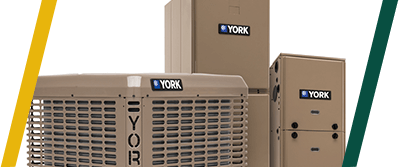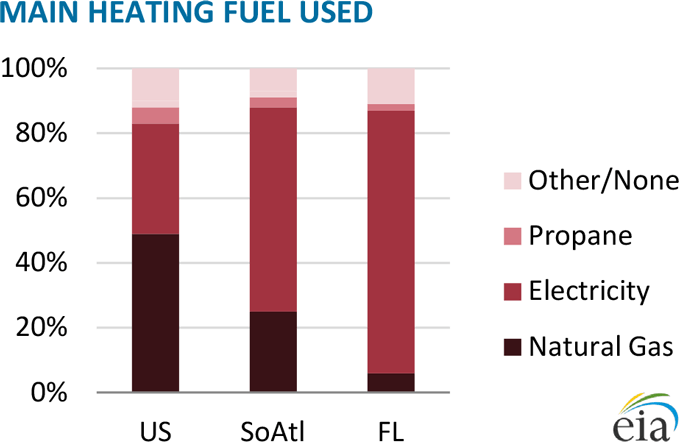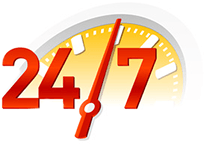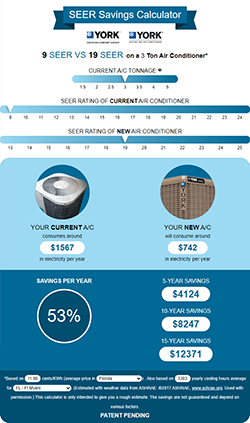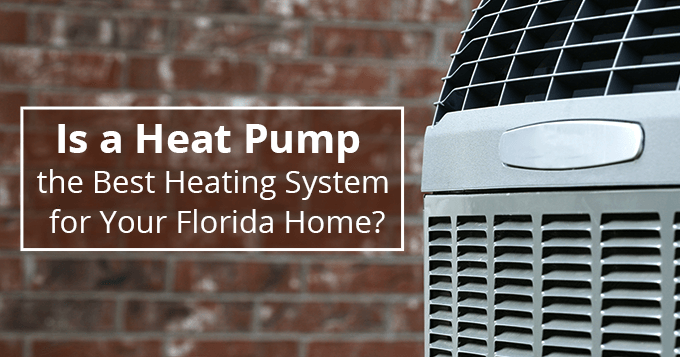
When the cooler months set in, you may consider something that doesn’t often cross the minds of Southwest Florida homeowners: heating your home. Now, it’s obvious that we need to heat our homes far less often than people in northern regions do. But even so, we see some chilly days here in the Sunshine State. (And although we don’t like to admit it to our northern friends, we’re probably more sensitive to cold weather.)
So, choosing the right heating system remains an important decision. For various reasons, heat pumps have become popular in recent years, particularly in warmer climates like ours. But is a heat pump the right choice for your Southwest Florida home? Read on and we’ll help you decide.
Get a Free Quote on a Heat Pump
Popular Heating Systems in Florida
First, let’s take a look at what heating systems are popular in our state. In Florida, the most common heating systems use electricity. 81% of Florida residents have either an electric resistance heating system or a heat pump. By contrast, propane and natural gas heating systems take only a tiny piece of the proverbial pie.
Resistance heaters include electric furnaces and straight cool systems (i.e. central air conditioners) with a heat strip.
How Efficient is Resistance Heating?
Technically speaking, resistance heating is 100% efficient, because 100% of the electricity is used to generate heat. One kilowatt of electricity will result in one kilowatt of heat. (Although, many resistance heaters do not reach peak efficiency.)
This sounds good on the surface. But what if I told you that a properly-installed air-source (a.k.a. air-to-air) heat pump is actually 150% to 300% efficient? It’s true. This means that for every one kilowatt of electricity, the result will be 1.5 to 3 kilowatts of heat.
Therefore, resistance heating is considered inefficient. In fact, heating with resistance heat is up to 3 times more expensive than cooling. If you rely on resistance heat during a prolonged cold snap, heating costs quickly add up. Eventually they’ll account for a bigger chunk of your electric bill than cooling costs do in the summer. This can be an “ouch” – especially since summer cooling costs make up around 50% of your electric bill.
Resistance Heater vs. Heat Pump: What’s the Difference?
The main difference between a heat pump and a resistance heater is simple. An air source heat pump transfers heat, while a resistance heater creates heat. The reason that heat pumps are more efficient? Transferring heat is more energy efficient than creating heat.
What Do You Mean by Heat Transfer?
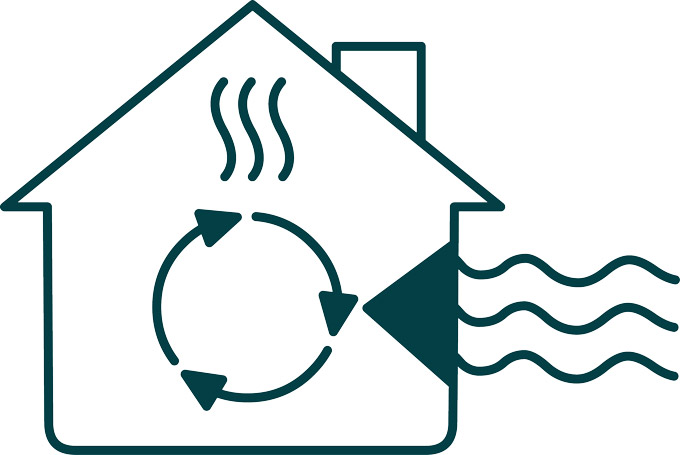
Even though you may not feel it, temperatures over absolute zero (0 Kelvin or -460 degrees Fahrenheit) contain heat. This means that even though it may feel cold outside, there is still heat present. An air-source heat pump basically functions by extracting heat from the outside and transferring it into your home (see a more detailed explanation below). By using this “recycled” heat, the heat pump expends much less electricity than if it were to create the same amount of heat on its own.
The result is about a 50% reduction in electricity usage compared to electric resistance heating. According to Florida Power & Light (FPL), a Florida homeowner who uses heat frequently can expect to save about $75/year in heating costs with a heat pump vs. a standard AC with a heat strip.
A Heat Pump is an Air Conditioner, Too.
During the cooling season, a heat pump and an air conditioner are indistinguishable. Both appliances are equally capable of keeping your home cool in the summer.
Cooling Efficiency Comparison
There is no inherent difference in energy efficiency between an air conditioner and a heat pump when it comes to cooling. Like an air conditioner, a heat pump’s cooling efficiency level depends on factors like installation quality and SEER (Seasonal Energy Efficiency Ratio) rating. It doesn’t depend on the type of appliance, itself.
A heat pump’s primary advantage is its ability to provide both cooling and heating in an energy efficient manner.
So, how does a heat pump differ from an air conditioner?
I’m glad you asked. It’s not until you turn on the heat that the differences between the two appliances become clear. This is when your heat pump flexes its superpower – the ability to provide heat by running like an air conditioner, only backwards.
Here’s a simple way to understand how this works. When cooling your home, the heat pump (like an air conditioner) transfers heat to the outside from the inside of your home. To heat your home, the cycle runs in reverse: the heat pump pulls heat to the inside from the outside. This means that the heat pump’s condenser starts acting like an evaporator and the evaporator starts acting like a condenser.
The condenser (a.k.a. compressor), puts the refrigerant liquid (e.g. R-410A) under high pressure, inducing condensation. When something condenses, it gives off heat.
The evaporator puts the refrigerant liquid under low pressure, inducing boiling or rather evaporation. When something evaporates, it pulls heat from any heat source around it and makes things cold.
Logically speaking, when your heat pump heats your home, the condenser is inside and the evaporator is outside. When the heat pump cools your home (like a regular air conditioner), the condenser is outside and the evaporator is inside. This switch is possible via the heat pump system’s extra reversible valve. The switching process takes place automatically without you noticing a thing
Air conditioners, also called “straight cool systems”, don’t heat by default. But, you can have a resistance heating element, called a heat strip, installed inside the air handler. A heat strip consists of wires, or coils, heated with electricity. These heated coils heat the air that flows over them, kind of like a toaster or a blow dryer. As discussed above, this is good for providing temporary heat but quickly becomes costly.
Do Heat Pumps Have Any Disadvantages?
Alas, yes. A heat pump is not right for everyone. Here are a couple things you should consider before upgrading your air conditioner or furnace to a heat pump:
Heat Pumps Need Backup.
You may have heard that a heat pumps function best in mild climates. The fact is that heat pumps do a great job of heating your home efficiently when the outside temperature is over 30 degrees Fahrenheit. When the temperatures hit the 20’s or lower, they sometimes have to rely on a supplemental heat source.
While I could talk about how using a backup heat source affects a heat pump’s energy efficiency, I want to focus on the fact that we hardly ever experience temperatures below 30 degrees in Florida. Meaning, a heat pump will almost always function at a high efficiency level when heating your home.
Regardless, having a backup heat source is still advisable. Often, the backup heat source will also trigger when the heat pump first cycles on. This happens in order to heat your home faster than the heat pump is able to on its own. So, to guarantee dependable heating, we still recommend having a secondary heat source, like a heat strip, in addition to your heat pump.
The bottom line: even when it has to rely on a backup heat source, the cost of heating with a heat pump will still beat the cost of resistance heating alone.
The ability to use a heat pump in conjunction with a supplemental heat source – like a gas furnace – makes a heat pump more appealing to those in colder Northern climates.
A Heat Pump’s Initial Cost is Higher.
Heat pumps carry a higher equipment cost than regular central air conditioners.
Will the higher initial investment pay off? The answer depends on how often you use your heating system on an annual basis. For homes in Northern Florida, where there are more annual heating days, a heat pump could pay for itself over time in energy cost savings. However, in Southern Florida, there may not be enough annual heating days for the investment in a heat pump to pay off.
Of course, a certain amount of personal preference plays in here as well. If you run your heat often because you always feel chilly in the winter time, then a heat pump is more likely to pay off for you. But if you’re the type of person who prefers layering on an extra sweater to cranking up the thermostat, then perhaps a heat pump is not for you.
There are ways to make a heat pump installation more affordable.
First, there are federal tax credits available on eligible heat pumps purchased and installed between 2023-2032. You can claim 30% of the project cost, up to $2,000, on a heat pump meeting the requirements outlined on energystar.gov. (Please be aware that you can only claim tax credits if you owe tax. You can’t receive the tax credit as a refund. We highly recommend consulting a tax professional for advice.)
For additional savings, be on the lookout for rebates from the manufacturer or your power company.
What should I look for in a heat pump?
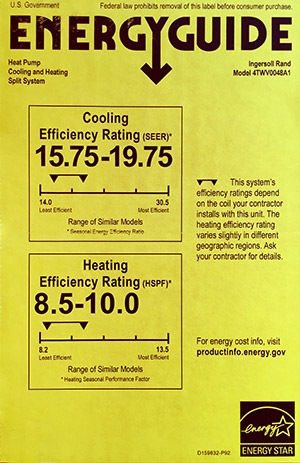
Like air conditioners, heat pumps have a SEER (Seasonal Energy Efficiency Ratio) rating. But a heat pump’s efficiency is also rated in HSPF (Heating Season Performance Factor). Look for a heat pump with a high SEER and HSPF rating. This will save you money on your electric bill in the long run.
Currently, one of the most efficient heat pumps on the market is the YORK YZV with up to 21 SEER and 10.75 HSPF. At Kobie Complete, we also offer comparatively less-efficient but viable options from a variety of manufacturers in several price categories.
Ductless Mini-Split Heat Pumps
Are you looking to add heating to part of your home with no existing ductwork (like a lanai or garage)? Or do you need a little extra warmth in one area that’s always too chilly? Consider a ductless mini-split heat pump. Not only are these systems convenient to install, but they can be extremely efficient. Read more about ductless systems.
Geothermal Heat Pumps
We would be remiss if we failed to mention a type of heat pump that has gained popularity in recent years. Whereas an air source heat pump extracts heat from the air, a geothermal heat pump transfers heat from a ground or a water source. Geothermal heat pumps are the most efficient type of heat pump available. But geothermal systems can be cost-prohibitive in many residential cases. Plus, the installation can be quite invasive.
Get a free, no obligation quote on a new heat pump.
Are you interested in upgrading your home’s cooling and heating system to a heat pump? If you live in Sarasota County or Charlotte County, you can request a free estimate by filling out the form below or calling us at (941) 474-3691. We will be glad to answer all your questions and recommend you a heating option tailored to your needs.
We provide air conditioning and heating services in Englewood, North Port, Venice, Punta Gorda and the surrounding areas. As “Your Complete Comfort Specialists”, Kobie Complete Heating & Cooling keeps you comfortable in your home year-round.
Last Updated: May 30, 2023
Editor’s Note: This article is the revised expanded version of the article “Heat Pump – A Heater and Air Conditioner in One” published on October 31, 2012.

